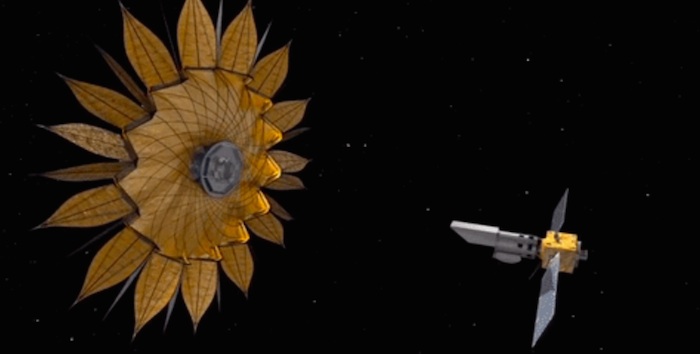.
NASA Has a Genius Way to Find New Earths — And Speed Up the Search for New Life
-
The more exoplanets we find and study, the closer we get to figuring out if life exists somewhere else in the universe.
But finding exoplanets is a tricky business. That's why NASA engineers are developing a giant, flower-shaped starshade to block out starlight and make it easier for astronomers to spot them.
.

Normally, astronomers find exoplanets by waiting for them to pass directly in front of their host stars; the temporary dip in brightness can tip us off to their existence.
This is a difficult method to use, though. Exoplanets are extremely far away, so they appear very small and faint to us. And with all the background starlight, it's a wonder we can spot them at all.
It's very likely that we've missed some exoplanets and even gotten some false positives for planets that aren't really there. The starshade will correct for that by blocking out excess light and giving telescopes a sharper view.
It works the same way as holding up your hand to block out sunlight as you watch a bird or a plane fly through the sky.
The starshade is designed as a flower-shaped screen about the size of a baseball diamond. It will fly tens of thousands of miles out in front of the telescope to block out excess light.
"Because stars are so far away, the angular distance between the planet and star is quite small, requiring a very large starshade (20 to 50 meters in diameter) flying very far from the telescope (up to 50,000 km)," Jeremy Kasdin, a scientist working on the starshade, explained to Universe Today.
Once engineers figure out a good way to package the starshade and deploy it in space, it could be launched alongside upcoming space telescopes like the Wide-Field Infrared Survey Telescope, the Transiting Exoplanet Survey Satellite or the James Webb Space Telescope.
Quelle: ScienceMic
4777 Views
